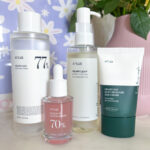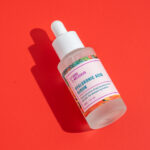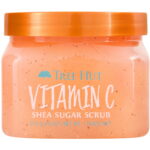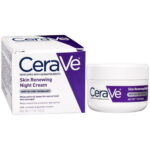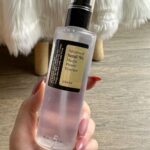The global skincare industry is expected to reach $145.82 billion over the next six years. Consumers spend millions on creams and other products designed to improve skin texture and stop aging in its tracks. But staying young and beautiful involves more than just applying a daily moisturizer or facial mask.
What you eat and drink is just as important as what you put on your skin. No cream or lotion can replace a balanced diet and proper sleep. Your overall health and lifestyle habits matter, too.
Unfortunately, there are plenty of skincare myths that make it difficult to separate fact from fiction. As a result, many consumers end up spending thousands of dollars on products they don’t need or use.
Some practices promoted over the internet can actually be harmful to your skin, leading to acne, blemishes, or premature aging.
That said, here are three common skincare myths you should stop believing and what to do instead!
1. Natural Skincare Products Are Safe to Use
Essential oils, witch hazel, retinol, and other natural ingredients are widely used in the skincare industry. However, “natural” doesn’t equal safe.
An all-natural cream or lotion may not match your skin type and can cause breakouts, rashes, allergic reactions, and more. For example, retinol—one of the most popular vitamin A derivatives—may irritate your skin and make it more sensitive to sunlight.
What’s more, the term “natural” doesn’t mean chemical-free.
Natural skin care products are not necessarily organic, hypoallergenic, or safe. Instead, you should look for vegan skincare brands that meet your individual needs and use no parabens or other harsh chemicals.
2. Coconut Oil Is a Perfect Moisturizer
One of the most common skincare myths says that coconut oil can be used as a moisturizer, makeup remover, acne treatment, and everything in between. Nothing could be further from the truth.
Coconut oil has antibacterial, anti-inflammatory, and moisturizing properties, but this doesn’t mean it’s a cure-all.
First of all, it’s poorly absorbed into the skin. Second, it can increase sebum production and cause acne breakouts. On top of that, it clogs the pores and may worsen acne, leading to blackheads and other skin issues.
3. You Should Only Apply Sunscreen When It’s Sunny
Chances are, you use sunscreen as part of your skincare routine, but you only apply it when it’s warm outside.
Health experts actually recommend applying sunscreen daily, even when you’re indoors. Most types of windows don’t offer protection from UVA rays, leaving your skin vulnerable to ultraviolet radiation.
Also, make sure you use sunscreen during the winter, too. The wind and cold weather can dry out your skin and create brown spots, accelerating the aging process. Note that sunscreen is necessary even for people with darker skin.
Ideally, look for products with a sun protection factor (SPF) of 30 or higher and apply them at least twice a day.
Don’t Fall for These Skincare Myths
Achieving a radiant, youthful complexion takes time. You can’t expect to apply a cream or lotion and get perfect skin within days or weeks. From your diet and skincare routine to your lifestyle habits, every detail matters.
For starters, stop believing everything you hear in the media. Research the beauty products you’re interested in and discuss your options with a dermatologist.
Now that you know more about the biggest skincare myths, see the rest of our blog for other tips. We’ll show you how to protect your skin from the sun, what to do about acne, and much more!

